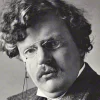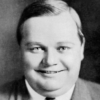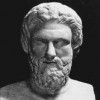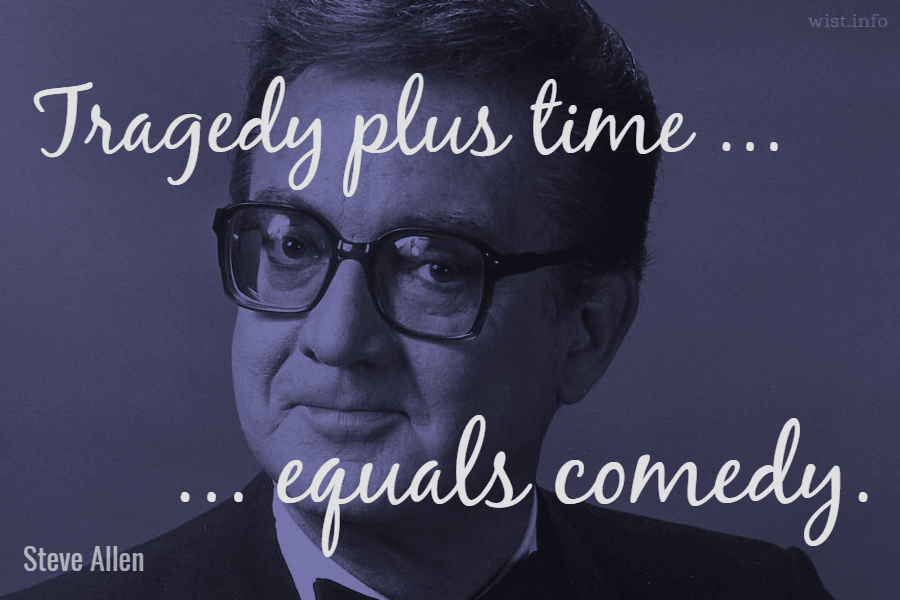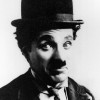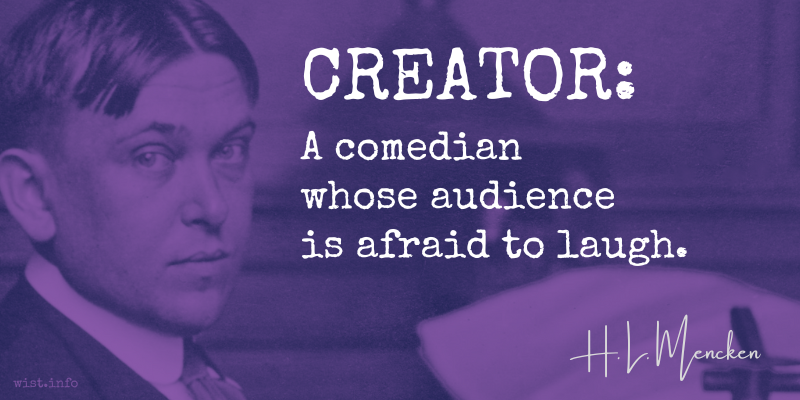The human comedy can keep amusing you, but only if you keep your distance.
Mignon McLaughlin (1913-1983) American journalist and author
The Second Neurotic’s Notebook, ch. 10 (1966)
(Source)
Quotations about:
comedy
Note not all quotations have been tagged, so Search may find additional quotes on this topic.
What is the reason that we laugh so freely in a theatre but are ashamed to weep? Is it less natural to be melted by what excites pity than to burst into laughter at what is comical? […] It is not thought odd to hear a whole theatre ring with laughter at some passage of a comedy, but, on the contrary, it implies that it was funny, and very naturally performed; therefore the extreme restraint every one puts on himself not to shed tears and the affected laughter with which one tries to disguise them, clearly prove that the natural result of lofty tragedy should be to make us all weep without concealment and publicly, and without any other hindrance than wiping our eyes.
[D’où vient que l’on rit si librement au théâtre, et que l’on a honte d’y pleurer? Est-il moins dans la nature de s’attendrir sur le pitoyable que d’éclater sur le ridicule? […] Comme donc ce n’est point une chose bizarre d’entendre s’élever de tout un amphithéâtre un ris universel sur quelque endroit d’une comédie, et que cela suppose au contraire qu’il est plaisant et très naïvement exécuté, aussi l’extrême violence que chacun se fait à contraindre ses larmes, et le mauvais ris dont on veut les couvrir prouvent clairement que l’effet naturel du grand tragique serait de pleurer tous franchement et de concert à la vue l’un de l’autre, et sans autre embarras que d’essuyer ses larmes, outre qu’après être convenu de s’y abandonner.]
Jean de La Bruyère (1645-1696) French essayist, moralist
The Characters [Les Caractères], ch. 1 “Of Works of the Mind [Des Ouvrages de l’Esprit],” § 50 (1.50) (1688) [tr. Van Laun (1885)]
(Source)
(Source (French)). Alternate translations:What's the reason that we laugh so freely, and are asham'd to weep at the Theatre? Is Nature less subjects to be soften'd by pity, than to burst forth at what is Comical? [...] We must suppose 'tis the natural effect of a good Tragedy, to make us Weep freely in sight of the whole Audience, without any other trouble than drying our Eyes, and wiping our Faces. It being no more ridiculous to be seen Weeping, than to be heard to Laugh by the whole Theatre: On the contrary, we then conclude there was something acted very pleasantly, and to the life; and the restraint a man puts on him∣self to hide his tears, by an affected Grimace, plainly demonstrates that he ought not to resist the main design of a Tragedy, but give way to his Passions, and discover em as openly, and with as much confidence, as at a Comedy.
[Bullord ed. (1696)]What is the reason we laugh so freely, but are asham'd to weep at the Theatre? Is Nature less subject to be soften'd by Pity, than to burst out into Laughter at what is Comical? [...] As therefore 'tis thought no odd thing to hear the whole Amphitheatre ring with an Universal Laughter, at some passage of a Comedy; butr on the contrary, implies something was pleasantly said, and naturally perform';d; so the extreme violence which every one offers to himself in constraining his Tears, and disguising ;em with affected Grimaces, clealry prove that the Natural Effect of good Tragedy is to make us weep with all freedom, and in concert, in another's sight, and wihtout any other disturbance than wiping our Eyes.
[Curll ed. (1713)]Why is it that we laugh so freely at the theatre and yet are ashamed to weep there? Is it less natural to be moved by what is pitiful than to be amused by what is ridiculous? [...] Since then it is no unusual thing to hear a whole theatre break into unanimous laughter at some passage in a comedy, since this implies, on the contrary, that it is amusing and extremely life-like, so the extreme violence we do to our feelings by restraining our tears, and the false laughter with which we try to conceal them, clearly proves that the natural effect of great tragedy should be to make us all weep quite openly, with one accord, in one another’s presence, with no further concern than to wipe our eyes.
[tr. Stewart (1970), "Of Books"]
Haste thee, Nymph, and bring with thee
Jest, and youthful Jollity,
Quips, and Cranks, and wanton Wiles,
Nods, and Becks, and wreathed Smiles,
Such as hang on Hebe’s cheek,
And love to live in dimple sleek;
Sport that wrinkled Care derides,
And Laughter holding both his sides.
It’s no use crying over spilt evils. It’s better to mop them up laughing.
Eleanor Farjeon (1881-1965) English author
Gypsy and Ginger, “Gypsy and Ginger Take Things Seriously” [Gypsy] (1920)
(Source)
I don’t think I ever hurt any man’s feelings by my little gags. I know I never willfully did it. When I have to do that to make a living I will quit.
Not living in fear is a great gift, because certainly these days we do it so much. And do you know what I like about comedy? You can’t laugh and be afraid at the same time — of anything. If you’re laughing, I defy you to be afraid.
Unless a thing is dignified, it cannot be undignified. Why is it funny that a man should sit down suddenly in the street? There is only one possible or intelligent reason: that man is the image of God. It is not funny that anything else should fall down; only that a man should fall down. No one sees anything funny in a tree falling down. No one sees a delicate absurdity in a stone falling down. No man stops in the road and roars with laughter at the sight of the snow coming down. The fall of thunderbolts is treated with some gravity. The fall of roofs and high buildings is taken seriously. It is only when a man tumbles down that we laugh. Why do we laugh? Because it is a grave religious matter: it is the Fall of Man. Only man can be absurd: for only man can be dignified.
Gilbert Keith Chesterton (1874-1936) English journalist and writer
“Spiritualism,” All Things Considered (1908)
(Source)
Our life gets as complicated as a comedy as it goes on, but the complications get gradually resolved: see that the curtain comes down on a good denouement.
[Vase empeñando nuestra vida como en comedia, al fin viene a desenredarse. Atención, pues, al acabar bien.]
Baltasar Gracián y Morales (1601-1658) Spanish Jesuit priest, writer, philosopher
The Art of Worldly Wisdom [Oráculo Manual y Arte de Prudencia], § 211 (1647) [tr. Jacobs (1892)]
(Source)
(Source (Spanish)). Alternate translations:Our life is acted like a Play. The Catastrophy is in the last Act. The chief part then is, to end it well.
[Flesher ed. (1685)]Our life becomes more complicated as we go along, like a comedy, but toward the end it becomes simpler; keep in mind, therefore, the happy ending.
[tr. Fischer (1937)]Our lives fold and unfold like theater, so be careful to end well.
[tr. Maurer (1992)]
He is as great a fool that laughs at all as he that weeps at all
[Tan necio es el que se ríe de todo como el que se pudre de todo.]
Baltasar Gracián y Morales (1601-1658) Spanish Jesuit priest, writer, philosopher
The Art of Worldly Wisdom [Oráculo Manual y Arte de Prudencia], § 209 (1647) [tr. Jacobs (1892)]
(Source)
(Source (Spanish)). Alternate translations:He is as great a Fool that laughs at all things, as he that vexes at every thing.
[Flesher ed. (1685)]As great a fool he who laughs at everything, as he who weeps over everything.
[tr. Fischer (1937)]The person who laughs at everything is just as foolish as the one made wretched by everything.
[tr. Maurer (1992)]
I don’t believe there is any finer mission on earth than just to make people laugh.
Roscoe "Fatty" Arbuckle (1887-1933) American silent film actor, comedian, director, screenwriter
“Fatty Off Guard,” interview by Elizabeth Sears (1916)
(Source)
‘But people, the ordinary faithful, are offended by crude comic blasphemies,’ voices are raised to tell me. Yes indeed. But what of my religion? I am a lover of truth, a worshipper of freedom, a celebrant at the altar of language and purity and tolerance. That is my religion, and every day I am sorely, grossly, heinously and deeply offended, wounded, mortified and injured by a thousand different blasphemies against it. When the fundamental canons of truth, honesty, compassion and decency are hourly assaulted by fatuous bishops, pompous, illiberal and ignorant priests, politicians and prelates, sanctimonious censors, self-appointed moralists and busy-bodies, what recourse of ancient laws have I? None whatever. Nor would I ask for any. For unlike these blistering imbeciles my belief in my religion is strong and I know that lies will always fail and indecency and intolerance will always perish.
Stephen Fry (b. 1957) British actor, writer, comedian
“Trefusis Blasphemes,” Loose Ends, BBC Radio 4 (1986)
(Source)
Reprinted in Paperweight (1992).
As for Comedy, it is (as has been observed) an imitation of men worse than the average; worse, however, not as regards any and every sort of fault, but only as regards one particular kind, the Ridiculous, which is a species of the Ugly. The Ridiculous may be defined as a mistake or deformity not productive of pain or harm to others; the mask, for instance, that excites laughter, is something ugly and distorted without causing pain.
[ἡ δὲ κωμῳδία ἐστὶν ὥσπερ εἴπομεν μίμησις φαυλοτέρων μέν, οὐ μέντοι κατὰ πᾶσαν κακίαν, ἀλλὰ τοῦ αἰσχροῦ ἐστι τὸ γελοῖον μόριον. τὸ γὰρ γελοῖόν ἐστιν ἁμάρτημά τι καὶ αἶσχος ἀνώδυνον καὶ οὐ φθαρτικόν, οἷον εὐθὺς τὸ γελοῖον πρόσωπον αἰσχρόν τι καὶ διεστραμμένον ἄνευ ὀδύνης.]
Aristotle (384-322 BC) Greek philosopher
Poetics [Περὶ ποιητικῆς, De Poetica], ch. 5 / 1449a (c. 335 BC) [tr. Bywater (1909)]
(Source)
Original Greek. Alternate translations:Comedy is, as we have said, an imitation of characters of a lower type -- not, however, in the full sense of the word bad, the ludicrous being merely a subdivision of the ugly. It consists in some defect or ugliness which is not painful or destructive. To take an obvious example, the comic mask is ugly and distorted, but does not imply pain.
[tr. Butcher (1895)]Comedy is, as we stated, the portrayal of an inferior class, yet not in all their inferiority, being the ludicrous side of ugliness abstracted. Ludicrousness is the painless and non-destructive variety of the species ugliness of the genus failing; thus, e.g., a ludicrous countenance is ugly and distorted, but not painful.
[tr. Margoliouth (1911)]Comedy, as we have said, is a representation of inferior people, not indeed in the full sense of the word bad, but the laughable is a species of the base or ugly. It consists in some blunder or ugliness that does not cause pain or disaster, an obvious example being the comic mask which is ugly and distorted but not painful.
[tr. Fyfe (1932), sec. 3.4]Comedy is, as we said, a representation of people who are rather inferior -- not, however, with respect to every kind of vice, but the laughable is [only] a part of what is ugly. For the laughable is a sort of error and ugliness that is not painful and destructive, just as, evidently, a laughable mask is something ugly and distorted without pain.
[tr. Janko (1987), sec. 2.4]Comedy is, as we said, a mimesis of inferior persons not however that it has to do with the whole range of wickedness but with what is funny -- an aspect of ugliness. A funny thing, to be precise, is a clumsy mistake that is not painful or destructive: or to take an obvious example, the comic mask is ugly and grotesque but not repulsive or painful.
[tr. Whalley (1997)]Comedy, as we said, is an imitation of people of a lower sort, though not in respect to every vice; rather, what is ridiculous is part of what is ugly. For the ridiculous is a certain sort of missing the mark and a deformity that is painless and not destructive; an immediate example is the comic mask, which is something deformed and misshapen without causing pain.
[tr. Sachs (2006)]Comedy is, as we said, representation of people who are inferior but not wholly vicious: the ridiculous is one category of the embarrassing. What is ridiculous is some error embarrassment that is neither painful nor life-threatening; for example, a comic mask is ugly and distorted but does not cause pain.
[tr. Kenny (2013)]
The same distinction marks off Tragedy from Comedy; for Comedy aims at representing men as worse, Tragedy as better than in actual life.
[ἐν αὐτῇ δὲ τῇ διαφορᾷ καὶ ἡ τραγῳδία πρὸς τὴν κωμῳδίαν διέστηκεν: ἡ μὲν γὰρ χείρους ἡ δὲ βελτίους μιμεῖσθαι βούλεται τῶν νῦν.]
Aristotle (384-322 BC) Greek philosopher
Poetics [Περὶ ποιητικῆς, De Poetica], ch. 2, sec. 4 / 1448a (c. 335 BC) [tr. Butcher (1895)]
(Source)
Original Greek. Alternate translations:This difference it is that distinguishes Tragedy and Comedy also; the one would make its personages worse, and the other better, than the men of the present day.
[tr. Bywater (1909)]Tragedy and Comedy are at the Poles: for the former means to portray a superior, the latter an inferior being to modern man.
[tr. Margoliouth (1911)]It is just in this respect that tragedy differs from comedy. The latter sets out to represent people as worse than they are to-day, the former as better.
[tr. Fyfe (1932)]Tragedy too is distinguished from comedy by precisely this difference; comedy prefers to represent people who are worse than those who exist, tragedy people who are better.
[tr. Janko (1987), 1.3]And tragedy stands in the same relation of difference to comedy; for the one tends to take as subjects men worse than the general run, and the other takes men better than we are.
[tr. Whalley (1997)]And by this very difference tragedy stands apart in relation to comedy, for the latter intends to imitate those who are worse, and the former better, than people are now.
[tr. Sachs (2006)]The very same difference makes the distinction between tragedy and comedy: the latter aims to represent people as worse, and the former as better, than people nowadays are.
[tr. Kenny (2013)]
Without laughter life on our planet would be intolerable. So important is laughter to us that humanity highly rewards members of one of the most unusual professions on earth, those who make a living by inducing laughter in others. This is very strange if you stop to think of it: that otherwise sane and responsible citizens should devote their professional energies to causing others to make sharp, explosive, barking-like exhalations.
Steve Allen (1922-2000) American composer, entertainer, and wit.
Funny People, Introduction (1981)
(Source)
DICAEPOLIS: Comedy too can sometimes discern what is right. I shall not please, but I shall say what is true.
Aristophanes (c. 450-c. 388 BC) Athenian comedic playwright
Acharnians, ll. 500-501 (425 BC) [tr. Athenian Society (1912)]
(Source)
Tragedy plus time equals comedy.
Steve Allen (1922-2000) American composer, entertainer, and wit.
“Steve Allen’s Almanac,” Cosmopolitan (Feb 1957)
Similar formulations have been made by Carol Burnett, Lenny Bruce, Bob Newhart, and Woody Allen. For more discussion see here.
I have observed that in comedies the best actor plays the droll, while some scrub rogue is made the fine gentleman or hero. Thus it is in the farce of life. Wise men spend their time in mirth, ’tis only fools who are serious.
No one shows himself as he is, but wears his mask and plays his part. Indeed, the whole of our social arrangements may be likened to a perpetual comedy; and this is why a man who is worth anything finds society so insipid, while a blockhead is quite at home in it.
[Allerdings zeigt Keiner sich wie er ist, sondern Jeder trägt eine Maske und spielt eine Rolle. — Ueber haupt ist das ganze gesellschaftliche Leben ein fortwährendes Komödienspielen. Dies macht es gehaltvollen Leuten insipid; während Plattköpfe sich so recht darin gefallen.]
Arthur Schopenhauer (1788-1860) German philosopher
Parerga and Paralipomena, Vol. 2, ch. 26 “Psychological Observations [Psychologische Bemerkungen],” § 315 (1851) [tr. Saunders (1890)]
(Source)
(Source (German)). Alternate translation:It is quite certain that no one shows himself as he is, but that each wears a mask and plays a role. In general, the whole of social life is a continual comedy, which the worthy find insipid, whilst the stupid delight in it greatly.
[tr. Dircks (1897)]No one reveals himself as he is; we all wear a mask and play a role.
[tr. Hollingdale (1970)]It is certain that no one shows himself as he is, but everyone wears a mask and plays a part. Generally speaking, the whole of our social life is the continuous performance of a comedy. This renders it insipid for men of substances and merit, whereas blockheads take a real delight in it.
[tr. Payne (1974)]
I think the metric by which television is considered liberal is literally based on the metric of liberalism in each person’s soul. Peoples’ senses of humor tend to go about as far as their ideology.
Jon Stewart (b. 1962) American satirist, comedian, and television host. [b. Jonathan Stuart Leibowitz]
“No News Is Good News,” interview by Adam Bulger, The Hartford Advocate (2008-06-12)
(Source)
On whether The Daily Show is liberal.
The show in general we feel like is a privilege. Even the idea that we can sit in the back of the country and make wise cracks … which is really what we do. We sit in the back and throw spitballs — but never forgetting that it is a luxury in this country that allows us to do that. That is, a country that allows for open satire, and I know that sounds basic and it sounds like it goes without saying. But that’s really what this whole situation is about. It’s the difference between closed and open. The difference between free and … burdened. And we don’t take that for granted here, by any stretch of the imagination.
Jon Stewart (b. 1962) American satirist, comedian, and television host. [b. Jonathan Stuart Leibowitz]
The Daily Show (2001-09-20)
(Source)
When Carlini was convulsing Naples with laughter, a patient waited on a physician in that city, to obtain some remedy for excessive melancholy, which was rapidly consuming his life. The physician endeavored to cheer his spirits, and advised him to go to the theater and see Carlini. He replied, “I am Carlini.”
There’s no credit to being a comedian, when you have the whole Government working for you. All you have to do is report the facts. I don’t even have to exaggerate.
Will Rogers (1879-1935) American humorist
(Attributed)
Quoted in P. J. O'Brien, Will Rogers, Ambassador of Good Will, Prince of Wit and Wisdom, ch. 9 (1935).
CREATOR. A comedian whose audience is afraid to laugh.
H. L. Mencken (1880-1956) American writer and journalist [Henry Lewis Mencken]
A Book of Burlesques, “The Jazz Webster” (1924)
(Source)
The A Little Book in C Major, ch. 4, § 18 (1916), has an alternate definition. This was expanded in Burlesques to include the above, which then became the sole definition in Chrestomathy, ch. 30 "Sententiae" (1949).
Sometimes misattributed to Voltaire.
REGAN: Jesters do oft prove prophets.
William Shakespeare (1564-1616) English dramatist and poet
King Lear, Act 5, sc. 3, l. 83 (5.3.83) (1606)
(Source)
Frequently misattributed (with "often" for "oft") to Joseph Addison.
This world is a comedy to those that think; a tragedy to those that feel.
Horace Walpole (1717-1797) English novelist, letter writer
Letter to Anne, Countess of Upper Ossory (16 Aug 1776)
(Source)
Walpole frequently used used this phrase or variants in letters (and in fact prefaces this quote with "I have often said ..."). Another example is an earlier letter to Horace Mann (31 Dec 1769):I have often said, and oftener think, that this world is a comedy to those that think, a tragedy to those that feel -- a solution of why Democritus laughed and Heraclitus wept.
It may be derived from an (unsourced) similar quote attributed Jean de La Bruyère: "Life is a tragedy for those who feel, and a comedy for those who think".
Comedy is simply a funny way of being serious.
Peter Ustinov (1921-2004) English actor, author, director
(Attributed)
While I could not find a specific source for this ubiquitous attribution, it does show up in two collections of Ustinov quotations during his lifetime: The Wit of Peter Ustinov, ed. Dick Edwards (1969), and The Quotable Ustinov, no editor given (1995).
All tragedies are finish’d by a death,
All comedies are ended by a marriage;
The future states of both are left to faith.







